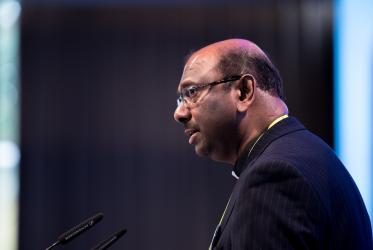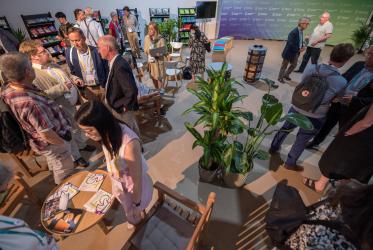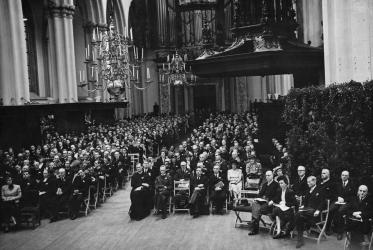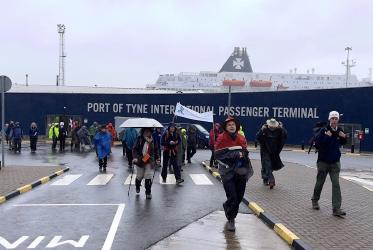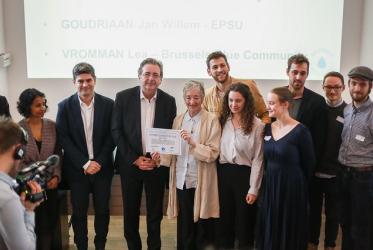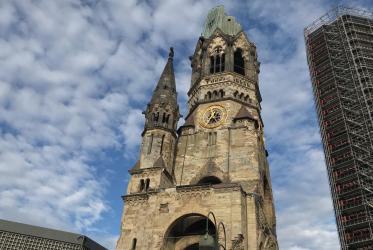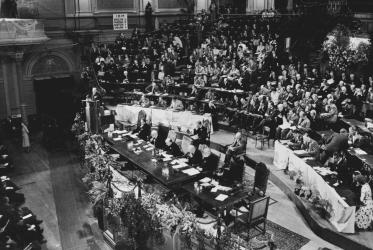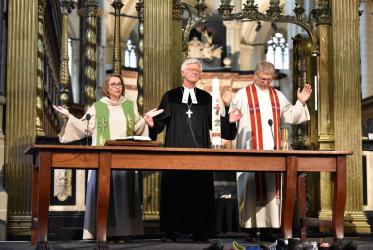Displaying 1 - 20 of 62
At assembly and beyond, WCC publications inspire and move
14 September 2022
WCC mourns passing of Hendrew Lusey-Gekawaku
23 October 2020
WCC joins gathering of Blue Communities in Brussels
06 December 2019
Thursdays in Black: sharing support, transforming lives
21 February 2019
Dr Cecile De Sweemer, the doer of God
30 November 2018
Walk of Peace draws hopeful - and young - crowd in Amsterdam
23 August 2018
“Love will find a way”
23 August 2018
